

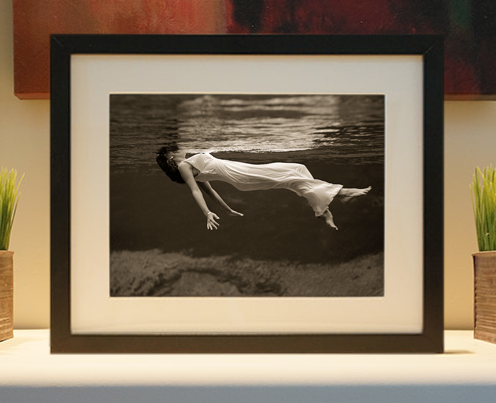
Framed or unframed, desk size to sofa size, printed by us in Arizona and Alabama since 2007. Explore now.
Shorpy is funded by you. Patreon contributors get an ad-free experience.
Learn more.

- Roll your own
- Rugged and real!
- A Charles Purcell - Mama Cass Connection
- Uncle SAAM
- Obfuscation
- One Chocolate Soldier rode away
- Victor Marquis de la Roche
- The Little House Across Way ...
- Vanderbilt Gates
- Vanderbilt Mansion
- You can still see that gate
- Withering heights for me
- So Jim,
- Top Heavy
- Re: Can't Place It.
- Bus ID
- Since you mention it
- The White Pages ?
- Moonlight Tower
- 1907?
- Fire(men) and Water
- Can't Place It
- Can anyone
- Wings
- Where's Claudette and Clark?
- Overbuilt Rolodex
- One song
- Give Me Wings Please!
- PRR
- Pinball Wizards
Printporium
Crank It: 1924
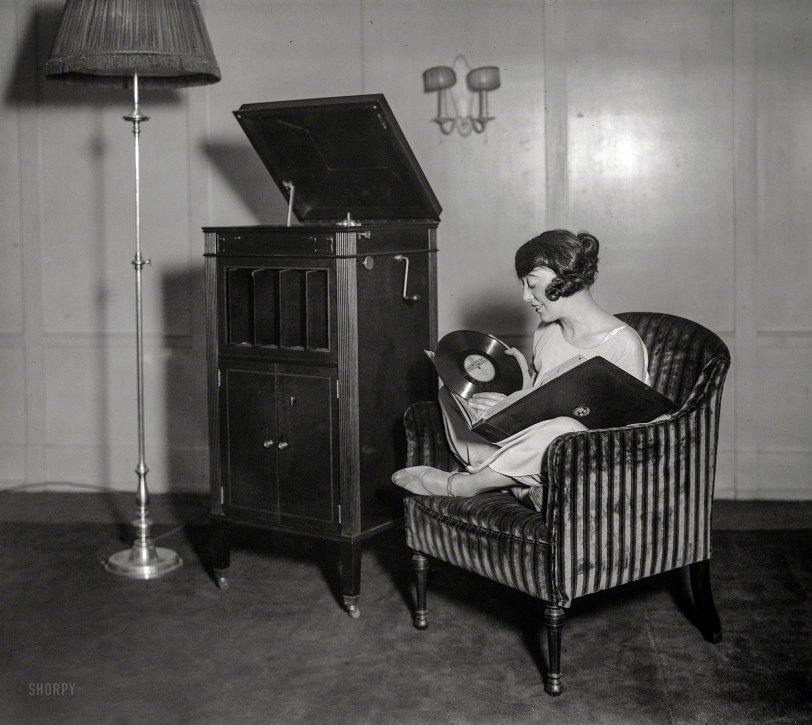
January 3, 1924. New York. "_________ listening to records." If you recognize yourself here, speak up. 5x7 glass negative, Bain News Service. View full size.
Confirmed: This is Mabel Normand.
I reached out to a relative of Mabel and he has confirmed that this is indeed Mabel Normand. It was likely part of a series of "Mabel at home in NYC" photos taken while she was living in a flat while in a stage production, "The Little Mouse".
It's Mabel
For sure. And her shoes are fabulous!!
The true identity
It is not Irene Bordoni or Rosa Ponselle, it is movie star Mabel Normand. Without a doubt.
Speaking of albums
You will note that Irene holds a 10-inch record, but cradles in her lap an album designed for 12-inch discs (said album bearing the Columbia "Magic Notes" trademark). The larger format could play up to five minutes per side, as opposed to the 10-inch format, which could accommodate a bit more than three minutes at the most. Classical works were often spread across three or four 12-inch records, with unfortunate gaps as you changed sides.
Thanks to Shorpy - we never stop learning
Baxado has a keen mind. Personally, even at my "older" age, I have never given a thought as to why record albums were called, well - "albums." My mother and grandmother used to keep various information and clippings in albums looking much like these. Thanks to the Shorpy Encyclopedia of Information (and Technobuff), I have learned something new today. Dave has started and continued a great learning tool with Shorpy. I'd love to know the back story of how it all came about.
More albums
We had a bunch of these when I was a kid, as our Zenith phonograph had a 78 speed. The album covers were a little more modest than what she is holding, but held I would say between 6 and 10 individual records. There was a Fats Waller album I would kill for today. What happened to them you ask? Well, when I was about 12 and the Zenith was gone, my little brother and I took all of them out to the church parking lot behind our house and scaled them into the brick wall like frisbees to watch them shatter. I am flushed with shame as I write this. Caught hell because of the mess we made, not because we destroyed the records. O heedless youth.
Shellac, records, and vinyl
Nowadays records are generally called "Vinyl"no matter what they are made of, but in the early days Shellac was a common material. Anyone who cares will find a treasure of information here:
https://en.wikipedia.org/wiki/Gramophone_record
In sixth grade my first term paper presentation was "How Records Are Made" which was a brief survey of what happens from the studio to the home record player (my best friend did one on how Television worked) and when I was younger than that actually had my own collection of 78s records, from Winnie the Pooh to Carl Perkins. Today I am a professional sound person! Got the bug at a young age.
Grafonola and records
Our lovely singer is enjoying a Grafonola model L-2, which was introduced in 1918 for $225, an expensive purchase in its time.
To answer Baxado, this is indeed where the term "record album" came from. The individual 78 RPM records are called, not surprisingly, "records". In time, the term record album came to include the LP, which is a collection of single tunes on one disc, and very much analogous to the multiple single-tune 78 RPM records sold as a set in cardboard albums and most popular in the 1940s. 45s were always (and still) called "records" and not albums, although there is a grey area of the 45 RPM EP records which contain more than one selection on a side. 45 RPM records were also sold in sets in albums, just like their 78 RPM brethren.
Where's Nipper
That's probably a "His Master's Voice" early version.
[Different company. Nipper was with Victor; this is Columbia. -tterrace]
So That's Why?
They are called record "Albums". [Thanks TechnoBuff] (BAXADO)
Rosa Ponselle
I believe this is Rosa Ponselle, opera singer for Columbia, hence the promotion.
[This svelte elf is definitely not Rosa Ponselle. -Dave]







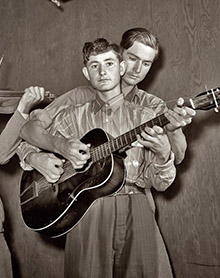
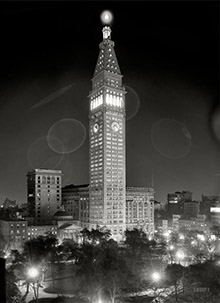
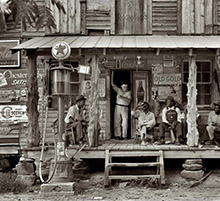
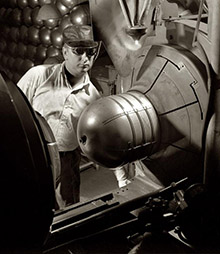
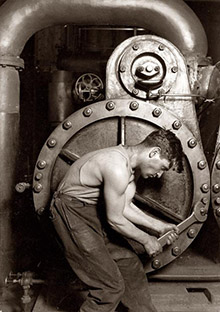
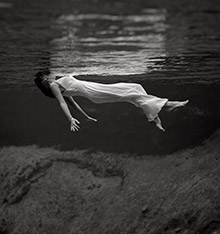
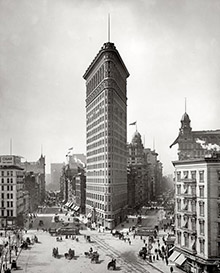



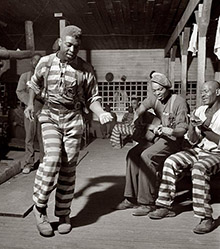

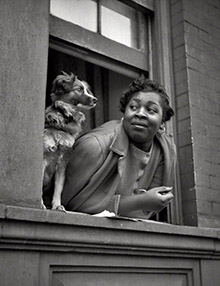

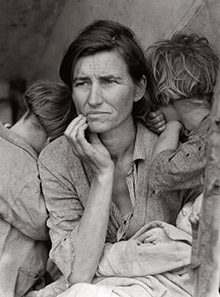

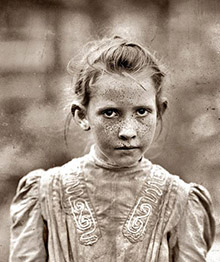
On Shorpy:
Today’s Top 5